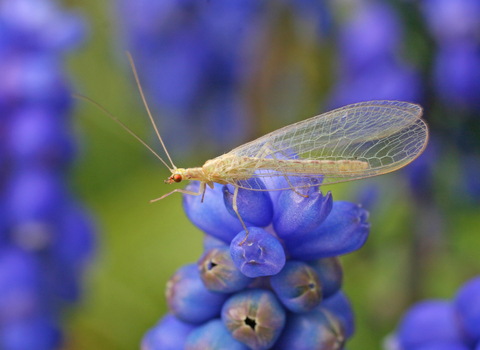
Common Green Lacewing ©Rachel Scopes
Common green lacewing
The common green lacewing is a lime green, delicate insect, with translucent, intricately veined wings. It is common in gardens and parks, where it helps to control aphid pests.
Scientific name
Chrysoperla carneaWhen to see
April to OctoberSpecies information
Category
Statistics
Length: 1-1.5cmCommon.
